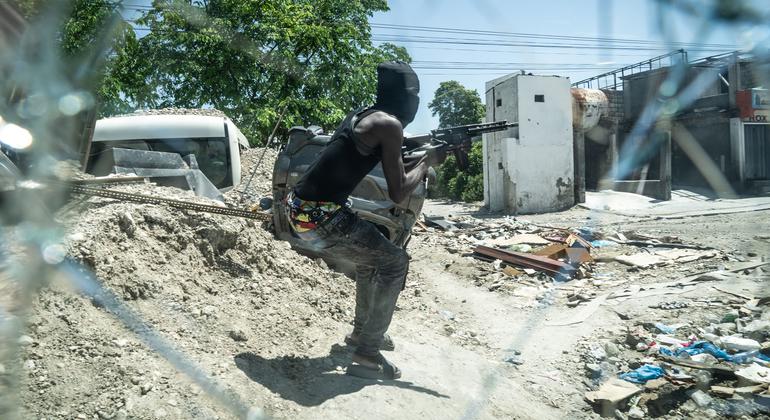In Haiti, the security situation has deteriorated alarmingly, with a total of 3,661 murders recorded so far this year, as reported by the UN Office of Human Rights. This increase in violence, primarily perpetrated by gang groups that control much of the country, has led to the fight against insecurity becoming the top priority for Haitian authorities and the international community.
The report reveals that high levels of violence remain unchanged from the previous year, and during the first half, at least 860 people lost their lives and another 393 were injured in police operations in the capital, Port-au-Prince. This situation has raised concerns about the possible disproportionate use of force by authorities, especially considering that this context has led to the recruitment of a significant number of children by gangs.
One of the most concerning tactics used by these groups is sexual violence, which has increased significantly, being used as a means to punish and subdue the population. Data also indicates that gang violence has spread beyond the capital, affecting traditionally safer regions, leading to an exodus of people seeking to escape criminality.
In the agricultural department of Artibonite, gangs have started extorting farmers and invading their lands, resulting in the loss of over 3,000 hectares of arable land. This has contributed to worsening the country’s food crisis, with 1.6 million people facing acute food insecurity.
The report also references threats issued by gangs in response to the deployment of the Multinational Security Support Mission, composed of police forces from different countries. One gang leader released a video challenging the mission, reflecting the climate of tension and violence in the country.
Volker Türk, the UN High Commissioner for Human Rights, has emphasized the urgent need for Haitian authorities to implement effective reforms to strengthen their judicial system and state institutions. Additionally, he has urged the international community to ensure compliance with sanctions imposed to combat gang violence and protect vulnerable populations, including children and victims of gender-based violence. Without decisive and sustained action, Haiti could remain trapped in an endless cycle of violence and suffering.
Referrer: MiMub in Spanish










